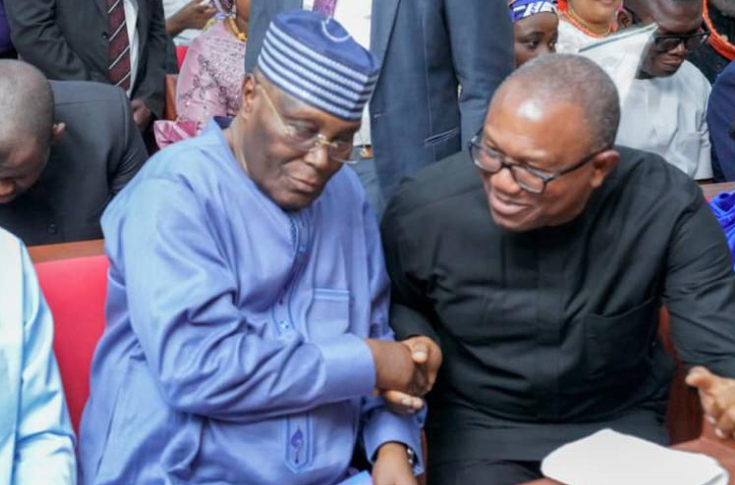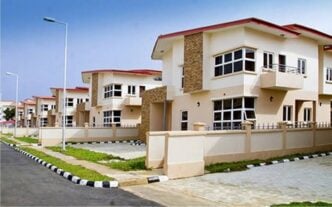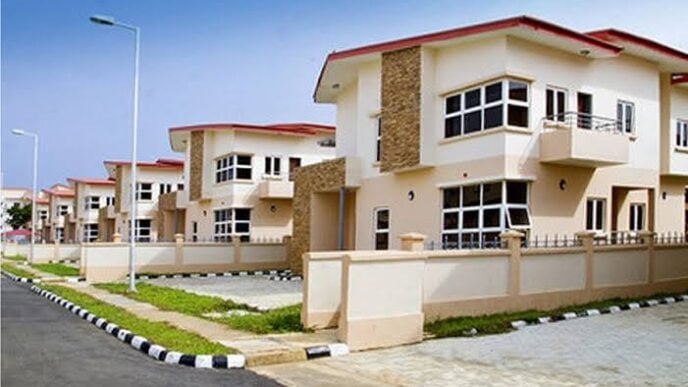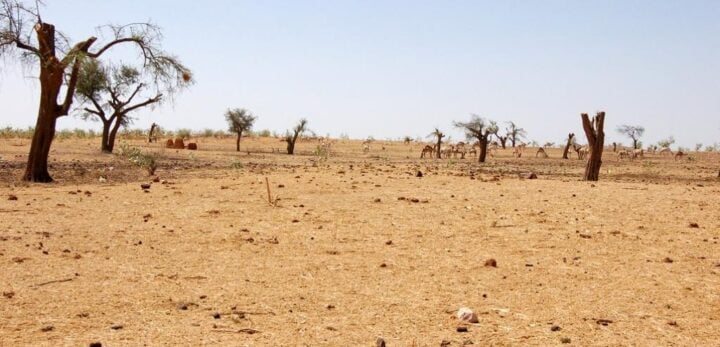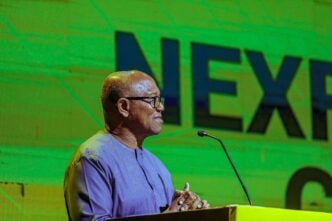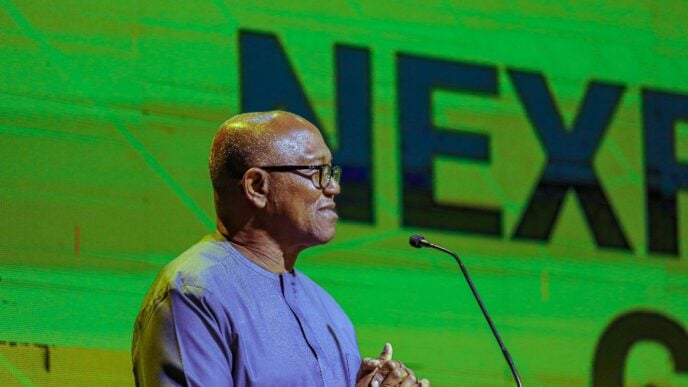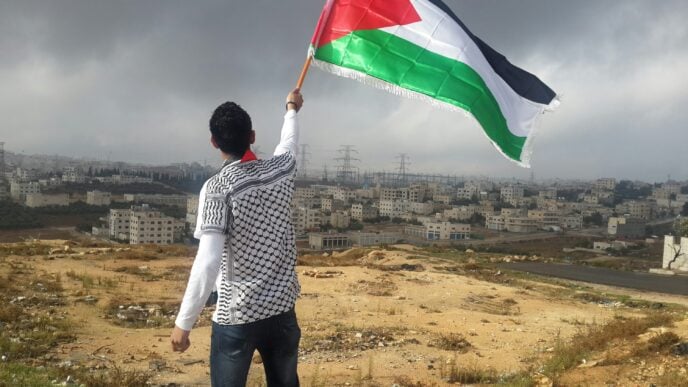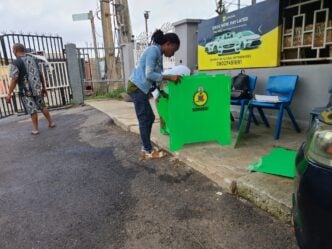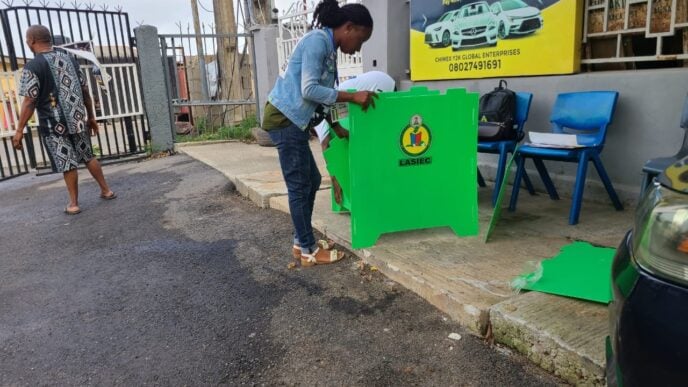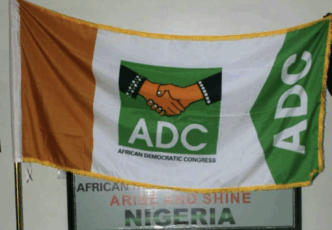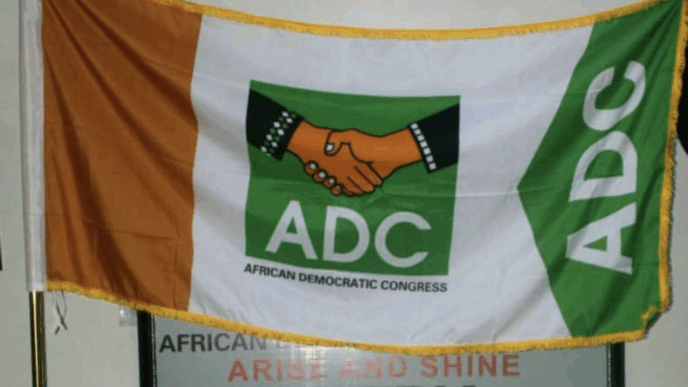BY SANI DANAUDI MOHAMMED
Coalitions have been a long-standing feature of politics around the world, allowing disparate parties to come together and achieve common goals. In Europe, for example, coalitions are a regular occurrence, with parties forming alliances to govern countries or push through specific policies. The German Christian Democratic Union’s (CDU) coalition with the Christian Social Union (CSU) is a notable example, where two parties with similar ideologies work together to achieve a stronger political presence.
Similarly, in India, the Bharatiya Janata Party (BJP) has successfully formed coalitions with other parties to achieve a majority in parliament.
In Nigeria, coalitions have also played a significant role in shaping the country’s politics. However, the success of coalitions in Nigeria has been mixed. The All Progressives Congress (APC), for example, was formed through a coalition of several parties that came together to challenge the ruling People’s Democratic Party (PDP). The APC’s success in 2015 and 2019 elections demonstrates the potential power of coalitions in Nigeria.
Advertisement
The proposed Atiku-Obi coalition, therefore, has the potential to make a significant impact on the 2027 elections. If the two leaders can put aside their differences and work towards a common goal, they may be able to tap into the enthusiasm and energy of their supporters and create a formidable challenge for President Tinubu’s re-election bid. The question remains, however, whether the Atiku-Obi coalition can learn from the successes and failures of past coalitions in Nigeria and elsewhere, and harness their combined strength to achieve victory.
The idea of a coalition between Atiku Abubakar and Peter Obi has gained significant attention in recent times. Both candidates have their own strengths and weaknesses. Atiku, with his experience and influence, remains a popular figure in Northern Nigeria. His presence in the ADC guarantees him a strong base to build on. On the other hand, Peter Obi, with his progressive policies and charisma, has garnered a significant following in the south. His track record as a two-term governor of Anambra state has earned him the respect and admiration of many southerners.
However, the challenge lies in the fact that neither Atiku nor Peter Obi can win the presidency alone. Atiku’s influence may be limited to certain regions, while Peter Obi’s appeal may not extend beyond the south. This is where the coalition comes in – a strategic alliance that could potentially bring together the strengths of both candidates and create a formidable force in the 2027 elections.
Advertisement
For a coalition to work, both parties would need to negotiate and compromise. This would require a level of flexibility and pragmatism, as neither side can afford to be rigid or arrogant. The stakes are high, and the reward could be a winning ticket that can take on the ruling APC. But if either side opts out, they risk losing not just the election but also their political relevance in the years to come.
The Nigerian voter is still largely influenced by tribal and religious affiliations, which makes it challenging for any candidate to win based solely on their individual merit. This reality underscores the need for a coalition that can transcend these divides and appeal to a broader audience. The question then becomes: can Atiku and Peter Obi find common ground and work together towards a shared goal?
If they fail to come together, the consequences could be severe. Not only would they likely lose the election, but they may also lose their political clout and relevance. The window of opportunity is open now, and it’s up to them to seize it. The Atiku-Obi coalition could be the key to giving Tinubu an election fight in 2027.
The Tinubu-led APC is currently in a strong position, boasting over 20 governors and a majority of the members of the national assembly across the country. This dominance makes it a formidable challenge for any opposition party or coalition to take them off power in 2027. However, a serious coalition with a strong foundation and strategic planning could potentially pose a significant threat to the APC’s hold on power.
Advertisement
Recently, the APC has made moves to strengthen its position by replacing the former national chairman, Dr. Ganduje, with Professor Nentawe Yelwada, a Christian from the north-central. This move appears to be an effort to balance the party’s representation and address concerns of injustice along religious and tribal lines. By appointing a chairman from a different region and faith, the APC may be attempting to project a more inclusive image and appeal to a broader audience.
Despite these efforts, the APC’s hold on power is not guaranteed, and a well-crafted coalition could potentially capitalise on any weaknesses or divisions within the party. A coalition that brings together influential figures like Atiku Abubakar and Peter Obi, who have strong followings in different regions, could provide a formidable challenge to the APC in 2027. The success of such a coalition would depend on its ability to unite behind a common goal and present a compelling alternative to the APC’s rule.
The ADC is facing a significant challenge in addressing the zoning dilemma, particularly with southern politicians insisting on having another four years of power. Although zoning is unconstitutional, it has become a political arrangement to ensure fair distribution of power among different regions. This has made it difficult for political parties to operate without considering zoning. The ADC coalition must navigate this complex issue carefully to avoid internal conflicts and ensure the party’s stability.
The presence of prominent figures like Mallam Nasir el-Rufai, Abdulrauf Aregbesola, Rotimi Amaechi, and Aminu Waziri Tambuwal in the coalition is a significant boost. However, if these figures have presidential ambitions, it could further exacerbate the zoning issue and cause cracks within the party. The ADC must find a way to manage these ambitions and ensure that the party’s goals are prioritised over individual interests.
Advertisement
The zoning issue is a delicate matter that requires careful consideration. The southern politicians’ insistence on having another four years of power may be driven by a desire to maintain regional balance and ensure that the presidency is not monopolised by one region. The ADC must engage in open and honest discussions with its members and stakeholders to find a solution that works for everyone. By doing so, the party can build trust, strengthen its unity, and increase its chances of success in the 2027 elections.
The People’s Democratic Party (PDP) is facing an awkward situation with one of its prominent members, Nyesom Wike, who is currently serving as a minister in President Tinubu’s government. Despite being an active member of the PDP, Wike has been openly declaring his support for President Tinubu, which raises questions about his loyalty to his own party. This unusual situation has sparked concerns about the PDP’s internal dynamics and Wike’s role within the party.
Advertisement
The PDP’s predicament is further complicated by Wike’s dual roles as a PDP member and a minister in the Tinubu-led government. This conflict of interest may lead to questions about whose interests Wike is truly serving. The situation may also impact the PDP’s ability to present a united front against the ruling party, given that one of its own members is closely aligned with the opposition.
The PDP is facing another significant challenge as it loses key figures to the African Democratic Congress (ADC), including the notable Atiku Abubakar. Atiku’s departure is particularly significant, given his influence and popularity in Nigerian politics. His decision to join the ADC is likely to further weaken the PDP’s position and may have implications for the party’s chances in future elections.
Advertisement
Other key notable figures who have defected from the PDP to other parties include the former Senate President David Mark apart from those who have joined the APC and ADC. For instance, some prominent politicians have left the PDP for the APC in search of better opportunities or due to disagreements with the party’s leadership. Similarly, the ADC has attracted some notable PDP members, including Atiku Abubakar, who are likely to play important roles in shaping the party’s future. These defections underscore the dynamic nature of Nigerian politics, where party allegiances can shift rapidly.
Dele Momodu argues that only a northern candidate can challenge President Tinubu, while the Obidients insist that Peter Obi is the best bet to retain the presidency in the south. This debate highlights Nigeria’s complex geopolitics, where regional dynamics often shape electoral outcomes. The Atiku-Obi coalition may need to navigate these regional sentiments carefully to succeed in their bid to challenge President Tinubu’s re-election.
Advertisement
The Atiku-Obi coalition could potentially capitalise on this sentiment. In the 2023 elections, Atiku and Obi garnered significant votes, with Atiku securing around 6.9 million votes and Obi getting about 6.1 million votes. If they combine their support bases, they might pose a strong challenge to President Tinubu’s re-election bid in 2027.
Some northern voters view the alliance as a strategic masterstroke, believing their combined votes could surpass Tinubu’s 8 million votes. However, others are skeptical, citing concerns about the coalition’s viability and regional dynamics. The success of the coalition would depend on various factors, including their ability to mobilise grassroots support, particularly among young and marginalised voters, and present a clear, compelling vision for Nigeria.
The APC, led by President Tinubu, has the advantage of incumbency, with access to state resources and a established party structure. Tinubu’s experience as President and his previous roles as Governor of Lagos State have given him a strong understanding of governance and politics. Additionally, the APC has a strong presence in many parts of the country, particularly in the North. However, the party’s weaknesses include internal conflicts, allegations of corruption, and criticisms of Tinubu’s handling of economic and security issues.
The Atiku-Obi coalition brings together two prominent politicians with significant followings in different regions of the country. Atiku’s experience as Vice President and Obi’s grassroots appeal could make them a formidable challenge to Tinubu’s APC. The coalition’s strengths include their combined votes from the last election, which could potentially surpass Tinubu’s votes. However, their weaknesses include the challenge of reconciling their differences, potential regional and ethnic tensions, and the need to build trust among their supporters.
The Atiku-Obi coalition is considering a power-sharing pact, with possible scenarios including Atiku as President and Obi as Vice President, or Obi as President with Atiku as a key backer. Atiku has reportedly offered Obi the Vice Presidential slot in a joint ticket, with a promise to serve only one four-year term. However, Obi has requested time to consult with his supporters. Alternatively, Rotimi Amaechi is positioning himself as a leading figure in the African Democratic Congress (ADC), which could potentially host the coalition.
The coalition faces challenges, including internal party dynamics, regional balance, and the ADC’s strength. Both the PDP and Labour Party are dealing with internal crises, which might affect the coalition’s viability. Northern voters are divided over the coalition, with some preferring a northern candidate and others open to supporting a southern candidate like Obi. The ADC’s ability to field a strong candidate and mobilise support will be crucial to the coalition’s success.
Danaudi writes from Bauchi via [email protected]
Views expressed by contributors are strictly personal and not of TheCable.
